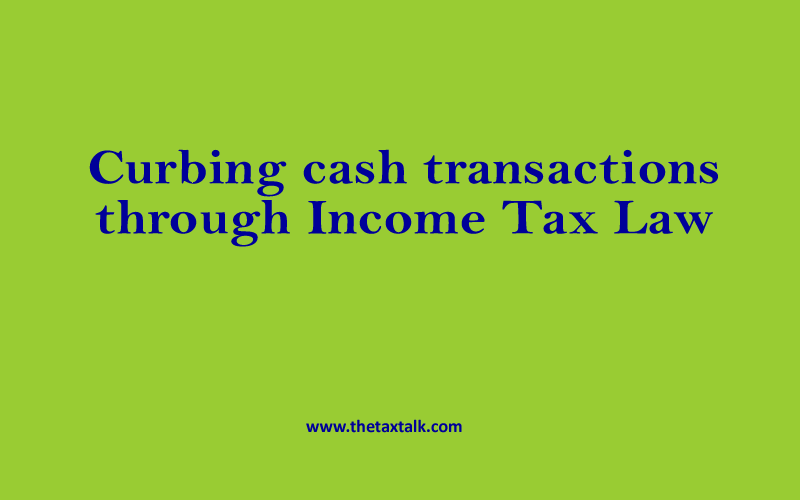![]()
Query 1]
I have a query, the answer to which I haven’t been able to find on the internet in spite of spending days looking for it. Both, me & my wife are working in the same company. We have purchased two houses in joint names. In the first house, my name is the first name; and, in the second house the first name is that of my wife. For the first house, I invested & took home loan; claimed tax benefits on interest etc; and for the second house, my wife invested & took home loan and claimed tax benefits on interest. The second house is lying vacant.
- Can we show both the houses as SOP; first house as me being the occupier, and the second house as my wife being the occupier? Or, is one of them to be declared as deemed let out?
- If the second house is to be deemed let out, do we both need to file ITR-2? If only one of us has to file the ITR-2, who should do it? Please guide. [Ashok Kumar Gupta- ashokbhilai@gmail.com]
Opinion:
From the facts of the case and information provided by you, it is aptly clear that the first property is owned by you as the entire investment and interest/principal repayment of housing loan is done by you and the income tax benefit thereon is claimed individually by you alone. For the same reason, second house property is owned by your wife though your name is incorporated as co-owner for the name sake for administrative convenience. In the given scenario, 2nd named person will not be treated as owner of the house property for the purpose of Income Tax Act-1961 and resultantly the question of deeming fiction in respect of second house property would not arise. Both of you can individually claim the respective property as self occupied house property (SOP).
Query 2]
I am a retired person. My income is from pension, interest, and from short capital gain. I have to submit ITR –I return. Please let me know in which column should I show my short term capital gain in ITR-1 return? [deepakfadnis@gmail.com]
Opinion:
ITR-1 can only be filed by an Individual/HUF having income from salary/ One House Property income/ other source income, provided that the total income doesn’t exceed Rs. 50 Lakh, Dividend income does not exceed Rs. 10 Lakh, No income u/s 115BBE, no relief u/s 90 or 90A. Person having income from capital gain cannot file the return in ITR-1. In your case, you have to file the return in ITR-2 wherein you will find the “Schedule CG” for filling the required information.
Query 3]
How will a house owned by a working woman be treated for tax purposes if she is not living in that and staying with her husband in a house owned by him? Will that house be considered as deemed to have rented for the woman? [JT- jaydeepat@gmail.com]
Opinion:
One house property of the individuals can always be treated as Self Occupied House property (if not let out) whether or not the same is actually occupied by the taxpayer .
The deeming provision is not applicable in such case.
Query 4]
I am salaried person and in 30% slab of Income Tax. I have paid Rs. 2,22,990/- towards the Hospital bill for by-pass surgery of self. Hospital has deducted Rs. 2,300/- as income tax and deposited it in my PAN account. It is requested to please inform whether I can get refund of this amount or I have to pay extra tax on the above? Under which clause I need to should show this amount in ITR-1 form for exemption or refund? [R.N.Jichkar- rvd6659@gmail.com]
Opinion:
To keep trail of cash transactions, Section 206C was amended by the Finance Act-2016 mandating the recipient of cash to collect Tax at Source (TCS) if the consideration against sale of goods/services is received for an amount exceeding Rs. 2 Lakh. In your case, TCS is done by the hospital as your payment in cash is exceeding Rs. 2 Lakh.
The payer is entitled to take the credit of TCS done on their payment to hospital while filing their income tax return. You can claim the credit for the same at the time filing your income tax return by filling the required information in specified column (No. 18D) titled “Details of Tax Collected at Source (As per From No. 27D issued by the Collector(s)”.
The above provision of section 206C requiring collection of Tax at Source (TCS) against cash consideration exceeding Rs. 2 Lakh @ 1% is abolished from the financial year 2017-18 commencing from 01/04/2017. However, to curb the cash transactions, an Income Tax Act has been amended to incorporate a new section 269ST from 01/04/2017 which prohibits acceptance of cash of Rs. 2 Lakh or more otherwise than by an account payee cheque or an account payee bank draft or use of electronic clearing system through a bank account:
(a) in aggregate from a person in a day; or
(b) in respect of a single transaction; or
(c) in respect of transactions relating to one event or occasion from a person.
Contravention of section 269ST would result in levy of penalty under section 271DA, which is equal to the amount of such receipt.
[button color=”” size=”” type=”round” target=”” link=”https://thetaxtalk.com/”]home[/button] [button color=”” size=”” type=”round” target=”” link=”https://thetaxtalk.com/submit-article-publish-your-articles-here/”]Submit Article [/button] [button color=”” size=”” type=”round” target=”” link=”https://thetaxtalk.com/discussion-on-tax-problem/”]Ask Question [/button]


